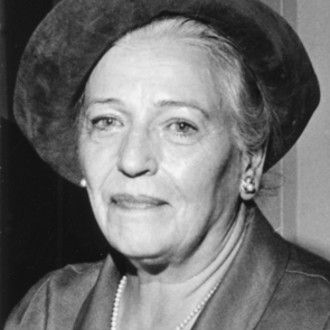Usamos cookies para mejorar la experiencia en el sitio web de Bookmate y nuestras recomendaciones.
Para obtener más información, consulta nuestra Política de cookies.
Para obtener más información, consulta nuestra Política de cookies.
Aceptar todas las cookies
Configuración de cookies
Algo salió mal. Vuelve a intentarlo.

en
Pearl S. BuckPearl S.BuckPearl S. BuckPearl S.BuckBuck Pearl S.Pearl S.Buck
da
- 7
hu
- 2
de
- 1
es
- 1
ro
- 1
tr
- 1
Pearl S. Buck was an American bestselling historical fiction author. Her classic novel The Good Earth (1931) won a Pulitzer Prize and William Dean Howells Medal. She received the Nobel Prize for Literature in 1938, the first American woman to have done so.
Pearl S. Buck was born in Hillsboro, West Virginia, U.S.. She was raised in Zhenjiang, eastern China, by Presbyterian missionary parents. She began her education under her mother and a Chinese tutor. Having reached the age of 15, she attended a boarding school in Shanghai and later pursued higher education at Randolph-Macon Woman’s College in Lynchburg, Virginia.
Pearl earned her degree in 1914 and stayed on as a psychology instructor for a semester.
In 1917, Buck married missionary John L. Buck, and despite a later divorce and remarriage, she retained the name professionally. Returning to China, she taught English literature at Chinese universities from 1925 to 1930, briefly studying at Cornell University in the United States.
Pearl S. Buck began with articles on Chinese life published in American magazines, and her first novel, East Wind, West Wind (1930), was written during her return voyage to America.
Her breakthrough came with The Good Earth (1931), a poignant narrative of a Chinese peasant and his slave wife navigating the challenges of their lives. The book became a bestseller, won a Pulitzer Prize in 1932, and marked Buck as an insightful interpreter of the East to the West.
The Good Earth was followed by Sons (1932) and A House Divided (1935), collectively published as The House of Earth (1935), earning her the Nobel Prize for Literature in 1938.
After moving to the United States in 1935, Buck and her second husband adopted six children. Her commitment to adoption turned into a personal crusade, leading to the establishment of the adoption agency Welcome House in 1949.
In 1964, she founded the Pearl S. Buck Foundation, later renamed Opportunity House, to support child sponsorship. These organizations merged in 1991 to form Pearl S. Buck International, headquartered at her estate, Green Hills Farm in Pennsylvania.
Besides fiction, Buck delved into biography, examining her parent's lives in Fighting Angel (1936) and The Exile (1936). Notable novels include Dragon Seed (1942) and Imperial Woman (1956), along with various short stories and nonfiction works.
Her contribution extended to children's books and a unique series published under the pseudonym John Sedges.
Pearl S. Buck died in Danby, Vermont, on March 6, 1973.
Photo credit: WV State Archives (WVSA), Emil Varney Collection
Pearl S. Buck was born in Hillsboro, West Virginia, U.S.. She was raised in Zhenjiang, eastern China, by Presbyterian missionary parents. She began her education under her mother and a Chinese tutor. Having reached the age of 15, she attended a boarding school in Shanghai and later pursued higher education at Randolph-Macon Woman’s College in Lynchburg, Virginia.
Pearl earned her degree in 1914 and stayed on as a psychology instructor for a semester.
In 1917, Buck married missionary John L. Buck, and despite a later divorce and remarriage, she retained the name professionally. Returning to China, she taught English literature at Chinese universities from 1925 to 1930, briefly studying at Cornell University in the United States.
Pearl S. Buck began with articles on Chinese life published in American magazines, and her first novel, East Wind, West Wind (1930), was written during her return voyage to America.
Her breakthrough came with The Good Earth (1931), a poignant narrative of a Chinese peasant and his slave wife navigating the challenges of their lives. The book became a bestseller, won a Pulitzer Prize in 1932, and marked Buck as an insightful interpreter of the East to the West.
The Good Earth was followed by Sons (1932) and A House Divided (1935), collectively published as The House of Earth (1935), earning her the Nobel Prize for Literature in 1938.
After moving to the United States in 1935, Buck and her second husband adopted six children. Her commitment to adoption turned into a personal crusade, leading to the establishment of the adoption agency Welcome House in 1949.
In 1964, she founded the Pearl S. Buck Foundation, later renamed Opportunity House, to support child sponsorship. These organizations merged in 1991 to form Pearl S. Buck International, headquartered at her estate, Green Hills Farm in Pennsylvania.
Besides fiction, Buck delved into biography, examining her parent's lives in Fighting Angel (1936) and The Exile (1936). Notable novels include Dragon Seed (1942) and Imperial Woman (1956), along with various short stories and nonfiction works.
Her contribution extended to children's books and a unique series published under the pseudonym John Sedges.
Pearl S. Buck died in Danby, Vermont, on March 6, 1973.
Photo credit: WV State Archives (WVSA), Emil Varney Collection
más
vida del autor: 26 Junio 1892 – 6 Marzo 1973
Libros
Audiolibros
- no disponible
- no disponible
- no disponible
Opiniones
👍Me gustó
no disponible
- Me gusta
- Comentar
- CompartirFacebookTwitterCopiar enlace
- Reportar
fb2epub
Arrastra y suelta tus archivos
(no más de 5 por vez)
